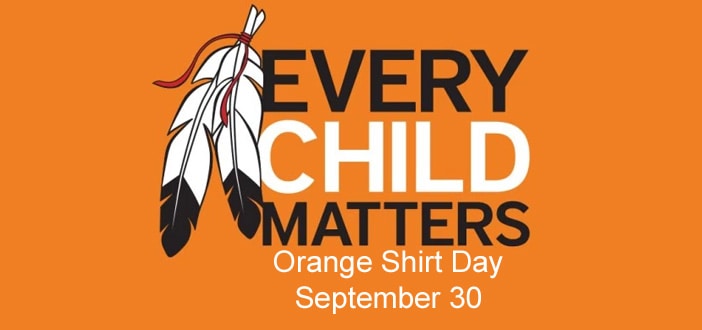Truth and Reconciliation Day in Durham honours Mississaugas of Scugog Island and residential school families
Published September 30, 2021 at 11:06 am

As the clock strikes 11 on the first National Day for Truth and Reconciliation in Canada, flags will be raised to honour Indigenous people, sacred fires will be lit by First Nations communities, flowers will be planted by local school children and orange-clad Canadians will take a moment to reflect and to honour residential school survivors, their families and communities.
The purpose of the holiday, the 80th Call to Action of 94 in the Truth and Reconciliation Commission of Canada report, is to “ensure that public commemoration of the history and legacy of residential schools remains a vital component” of the reconciliation process.
Orange Shirt Day, an Indigenous-led grassroots commemorative day that honours the children who survived residential schools and remembers those who did not, is also held today. This day relates to the experience of Phyllis Webstad, a Northern Secwpemc (Shuswap) from the Stswecem’c Xgat’tem First Nation, on her first day of school, where she arrived dressed in a new orange shirt, which was taken from her. It is now a symbol of the stripping away of culture, freedom and self-esteem experienced by Indigenous children over generations.
All Canadians are encouraged to wear orange on September 30 to raise awareness of the tragic legacy of residential schools, and to honour the thousands of survivors.
The Mississaugas of Scugog Island First Nations (MSIFN) are planning a number of ceremonies today and are hoping Canadians take the time to think about the legacies left behind by residential schools, and maybe even read the report.
Six years after the report called for it, Canadians are “finally given a day to reflect on the treatment of Indigenous people in the past and present,” the MSIFN tweeted this morning.
“We recognize that this is not an easy task. However, no one ever said that reconciliation would be easy. Facing the truth and changing the way things are done requires curiosity, empathy, and courage.”
The band said an essential part of today’s ceremonies is the lighting of a sacred fire.
“To the Anishinaabeg, it acts as a spiritual doorway, as a way to connect to the spirit of our ancestors. With offerings of food & tobacco, we send our love, admiration, & respect to the spiritual world. It also provides our members with comfort, protection, and community – which is of utmost importance on this challenging day.”
The Truth and Reconciliation Commission and its 94 Calls to Action – including #43: We call upon federal, provincial, territorial and municipal governments to fully adopt and implement the United Nations Declaration on the Rights of Indigenous Peoples as the framework for reconciliation – are available here:
Truth and Reconciliation Commission of Canada: Calls to Action
insauga's Editorial Standards and Policies advertising





